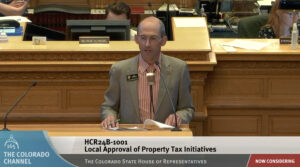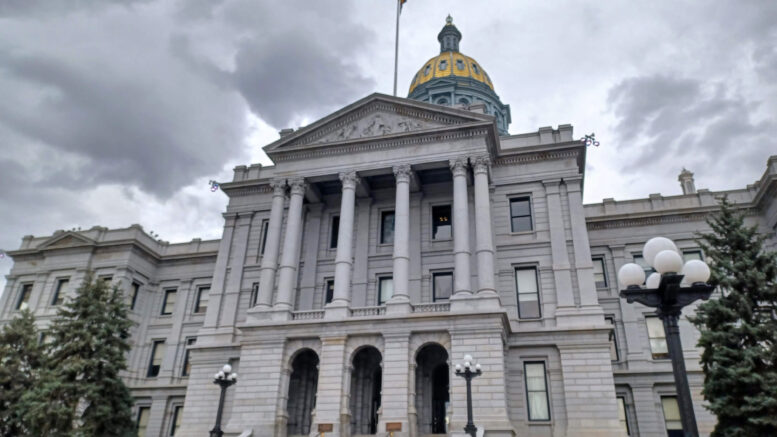For the third straight year, legislators are advancing a bill to make it easier to file costly deceptive-trade-practices lawsuits under the Colorado Consumer Protection Act — a bill that’s narrower than predecessors but will harm the business atmosphere, opponents say.
Senate Bill 157 would undo the requirement that a person must prove that a deceptive trade practice has had a “significant public impact” by pointing to a range of other people who have been harmed by the action of a business or individual. Instead, the bill from Democratic Sens. Mike Weissman of Aurora and Julie Gonzales of Denver would let attorneys prove significant impact by arguing an action had or has the capacity to injure others, opening the claims to any person suffering individual harm.
Colorado is one of seven states requiring proof of significant public impact by deceptive trade practices in consumer-protection lawsuits, which several plaintiff’s attorneys said Tuesday raises the bar so high as to make it difficult to file successful CCPA civil suits. Without such proof, plaintiffs can’t seek triple damages and attorney’s fees, which in turn makes such complex lawsuits far less attractive for attorneys to take.
Why proponents say the bill — and more lawsuits — are needed
Reducing the burden to claim significant public impact would give more Coloradans access to courtroom protections while President Donald Trump is dismantling the Consumer Federal Protection Bureau, several bill backers said. And it would bring Colorado in line with the legal standards of most other states, including Republican states where business continues to flourish despite increased consumer protections, Weissman told the Senate Business, Labor & Technology Committee.
“This bill invites us to grapple with and answer one simple question: How many of our constituents have to be harmed … before the courthouse doors will open to them?” Weissman asked before the committee advanced SB 157 on a 4-3 Democrat-led party-line vote to the Senate floor.

Colorado state Rep. Mike Weissman explains his proposed property-tax constitutional amendment to the House during a 2024 special legislative session.
Opponents from a variety of industries warned, however, that the more appropriate question is how much harm legislators are willing to do to several key sectors by passing the bill.
Construction attorneys said that allowing increased damages for construction-defects disputes over standalone single-family houses could open that homebuilding segment to the rash of lawsuits that have plagued and crippled the condominium sector. And it could force apartment operators to raise rents to pay damages while simultaneously scaring prospective investors out of wanting to build badly needed stock in Colorado, said Andrew Hamrick, Colorado Apartment Association general counsel.
Medical groups worry about impact on health-care providers
Plus, one year after medical groups agreed to a compromise that will roughly triple the cap on noneconomic damages in malpractice lawsuits from $300,000 to $850,000 in the coming years, this bill could allow for treble damages that triple the awards again. That sextupling of potential awards will drive up insurance costs for health-care providers and make Colorado less competitive in trying to attract the top doctors who have choices on where to practice, said Patrick Boyle, lobbyist for medical insurer Copic.
Weissman noted that this year’s bill includes guardrails that prevent deceptive-trade-practice claims based solely on allegations of breach of contract, negligence or improper rendering of professional services. That, supporters said, would mean that breach-of-contract claims on home construction could not easily become CCPA claims.
However, the bill allows all those types of claims to become CCPA violations if plaintiffs allege a defendant materially misrepresented a fact, failed to disclose material information or took actions that can’t be characterized as providing advice, judgment or opinion. And simply alleging those violations is an easy bar to hit to turn a dispute between two parties into a deceptive trade practice — a term that implies something that happens over and over, said Drew Unthank, a partner at Wheeler Trigg O’Donnell LLP representing the Colorado Chamber of Commerce and Colorado Civil Justice League.
Attempt to bolster lawsuits could face more opposition in Senate
“This issue keeps coming up, and it remains a solution in search of a problem,” Unthank told the committee.
Similar efforts from Weissman, when he served in the House of Representatives, passed the House in 2023 and 2024 only to be stripped from bills or die in the Senate Judiciary Committee at the hands of Republicans and moderate Democratic Sen. Dylan Roberts. This latest effort began in a committee whose members are more sympathetic to the plaintiff’s bar, though it could still run into trouble in the full Senate.
It’s likely opponents will continue to amplify concerns that passage of SB 157 serves as a trial lawyers’ antidote to proposed construction-defects reform, especially as Gov. Jared Polis has endorsed a bill this year that would make it harder to sue over condo defects. That bill is scheduled for its first hearing on March 18 before the House Transportation, Housing and Local Government Committee.
